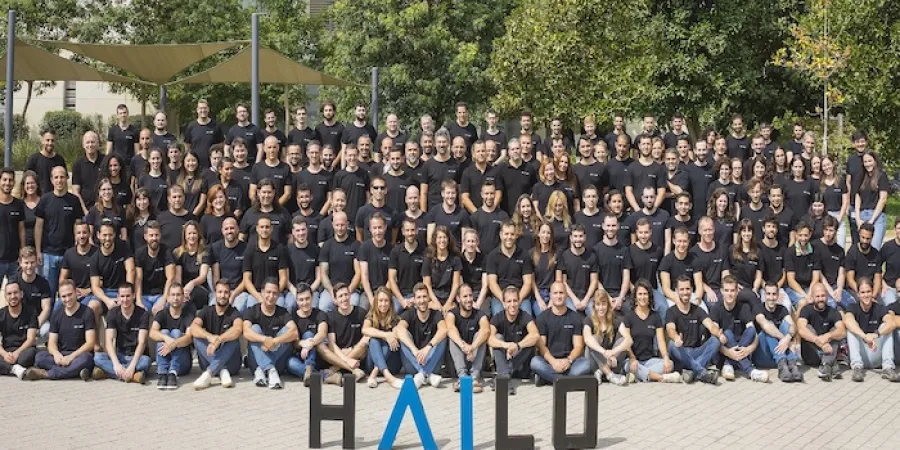Israeli AI chipmaker Hailo raises $136 million
Series C funding round is the largest in the edge AI chip space to date, highlighting the exploding demand for advanced AI processors for smart cities, smart retail, Industry 4.0, automotive, and beyond
Cybertech
| 14/10/2021
Leading Israeli AI (Artificial Intelligence) chipmaker Hailo announced it has raised $136 million in a Series C funding round, led by Poalim Equity and Gil Agmon. The round brings Hailo’s total funding to $224 million.
In a world with skyrocketing demand for advanced, intelligent AI chips for countless industries, this funding will be used to address surging interest in the Hailo-8™ AI Processor for Edge Devices, allowing the company to further develop its next-generation products and expand into both new and existing global markets.
“We are honored by this milestone round for an edge AI chip company and will use these significant resources to accelerate our aggressive plan to make advanced AI edge solutions more accessible to industries across the globe,” said Orr Danon, CEO and Co-Founder of Hailo. “This tremendous support is a testament to our unparalleled edge AI product line, and we look forward to empowering even smarter and swifter devices, and thus, a more robust future powered by AI.”
With a unique architecture based on the neural networks of the human brain, the Hailo-8™ delivers the same performance for smart devices as that provided by large data center computers, paving the way for a future of smarter edge products. Hailo’s chip enables enterprises to harness the power of AI at lower costs and higher efficiency. In light of ever-expanding demand, Hailo has been consistently expanding its product line.
Hailo has doubled its customer base to more than 100 clients over the last two fiscal quarters of 2021 as more enterprises seek out AI solutions that empower sensors and smart devices at lower costs, lower energy, and greater power. The company has expanded its presence globally over the last year, opening offices in Tokyo, Taipei, Munich, and Silicon Valley.
Series C funding round is the largest in the edge AI chip space to date, highlighting the exploding demand for advanced AI processors for smart cities, smart retail, Industry 4.0, automotive, and beyond
Leading Israeli AI (Artificial Intelligence) chipmaker Hailo announced it has raised $136 million in a Series C funding round, led by Poalim Equity and Gil Agmon. The round brings Hailo’s total funding to $224 million.
In a world with skyrocketing demand for advanced, intelligent AI chips for countless industries, this funding will be used to address surging interest in the Hailo-8™ AI Processor for Edge Devices, allowing the company to further develop its next-generation products and expand into both new and existing global markets.
“We are honored by this milestone round for an edge AI chip company and will use these significant resources to accelerate our aggressive plan to make advanced AI edge solutions more accessible to industries across the globe,” said Orr Danon, CEO and Co-Founder of Hailo. “This tremendous support is a testament to our unparalleled edge AI product line, and we look forward to empowering even smarter and swifter devices, and thus, a more robust future powered by AI.”
With a unique architecture based on the neural networks of the human brain, the Hailo-8™ delivers the same performance for smart devices as that provided by large data center computers, paving the way for a future of smarter edge products. Hailo’s chip enables enterprises to harness the power of AI at lower costs and higher efficiency. In light of ever-expanding demand, Hailo has been consistently expanding its product line.
Hailo has doubled its customer base to more than 100 clients over the last two fiscal quarters of 2021 as more enterprises seek out AI solutions that empower sensors and smart devices at lower costs, lower energy, and greater power. The company has expanded its presence globally over the last year, opening offices in Tokyo, Taipei, Munich, and Silicon Valley.



